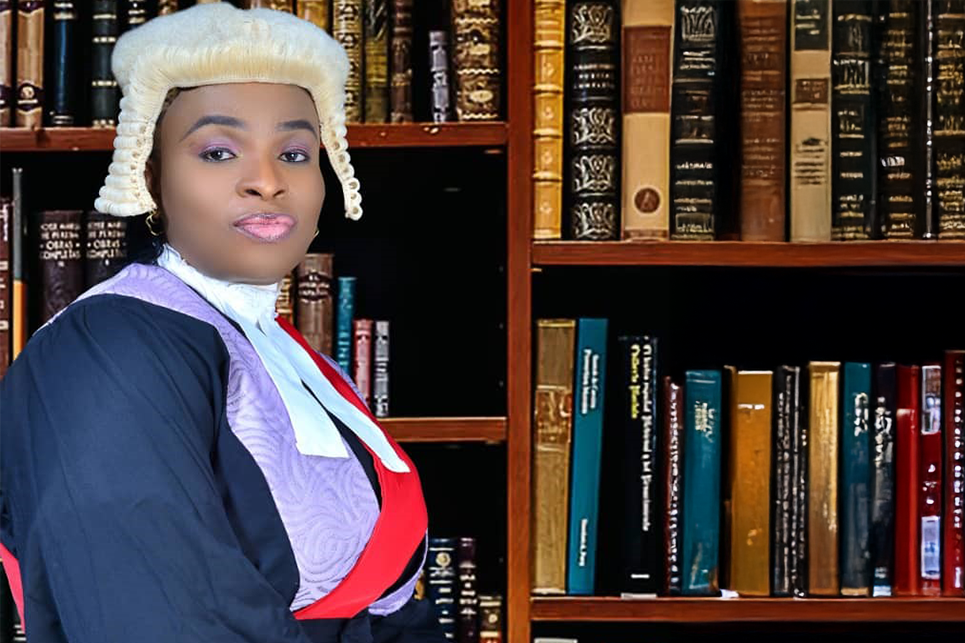Training judges in judicial ethics and conduct against corruption: a priority for judiciaries
María del Carmen Maldonado Sánchez, President of the Judicial Council of Ecuador.
Advisor to the Justice Studies Center of the Americas (CEJA). Former judge of the Constitutional Court.
______________________________
Combating corruption effectively is essential to guarantee human rights, as citizens' confidence in the judicial system, judicial independence and access to fair justice is at stake. As Anne Peters emphasizes, "corruption in the administration of justice jeopardizes basic rights to judicial protection”[1].
Article 11 of the United Nations Convention against Corruption emphasizes that, in order to effectively combat corruption, members of the judiciary shall act with integrity.[2] Article 3, paragraph 8 of the Constitution of the Republic of Ecuador[3] states that it is the primary duty of the State to guarantee its inhabitants the right to a culture of peace, comprehensive security and to live in a democratic society free of corruption. This is complemented by Article 181, paragraph 5, of the Constitution which states that one of the functions of the Judicial Council is: "to ensure the transparency and efficiency of the Judiciary".[4]
The current administration of the Judicial Council of Ecuador, which took office in January 2019, determined as its priority the "fight against corruption", with the specific objective of institutionalising transparency and integrity in the Judiciary.
An example of the implementation of this policy is the current reform of the Judicial Code of Ethics. In the reform of the Code, the Judicial Council is working with the Justice Studies Centre of the Americas to ensure that the new version includes the highest international standards on judicial ethics and integrity.
In addition, with the aim of providing Ecuador with specialized mechanisms against corruption, the Judicial Council has created the first judicial unit specialized in corruption and organized crime. This is the result of a joint effort with the National Assembly of Ecuador which, through the reform of the Organic Judicial Code, confers this competence to the Judicial Council. Ecuador thus joins other Latin American countries with specialized anti-corruption jurisdictions, such as, Argentina, Brazil, Costa Rica Mexico, Paraguay and Peru.
As regards the promotion of ethics and integrity, we have been strongly supported by the Judicial Integrity team of the United Nations Office on Drugs and Crime. Since May 2020, the Judicial Council has become a training site of the Global Judicial Integrity Network, with the commitment to implement activities to disseminate international standards on the subject[5].
Ethics and integrity training based on the Bangalore Principles of Judicial Conduct provides judges with the tools to analyze and resolve ethical issues. These Principles uphold the values of independence, impartiality, integrity, propriety, equality, competence and diligence. Judicial training is also based on the provisions of the United Nations Convention against Corruption, which recognizes the critical role of the judiciary in taking measures to strengthen integrity and prevent any appearance of corruption and impropriety among members of the judiciary. [6]
The judicial ethics training aims to clarify concepts and identify potential conflicts to justice operators, especially in the light of the contemporary challenges, ranging from the use of social media to the continuing questioning of the legitimacy of justice systems.
The Judicial School of Ecuador has conducted nine training courses based on national anti-corruption tools, involving more than 25,000 participants, and has trained justice operators in combating organized crime, including more than 400 judges by May 2021.
In addition, the Global Judicial Integrity Network's e-learning course on Judicial Conduct and Ethics was included in the judicial training curriculum as a mandatory requirement for judges and clerks in the country, and to date, more than 2,000 judges and members of the judiciary have obtained a certificate of completion.
We are convinced that through awareness-raising, institutional integrity is strengthened and that this improves the service of justice for social peace. The great participation of our operators in the virtual tool provided by the Global Judicial Integrity Network reflects the commitment of the Ecuadorian Judiciary to ethics and integrity and represents a milestone for Ecuador. This places us among the first countries in the world, in terms of the number of participants, to have passed the course.
Judicial transparency is a moral benchmark for the members of the judiciary and should therefore guide them in making ethical decisions in both their professional and private lives.
[1] Peters, Anne, Corrupción y derechos humanos, in Impacto de la corrupción en los derechos humanos, Tablante Carlos and Morales Mariela, editors, Instituto de Estudios Constitucionales del Estado de Querétaro México, 2018, p. 33. https://www.corteidh.or.cr/tablas/r37786.pdf
[2] United Nations Convention against Corruption, United Nations, United Nations Office on Drugs and Crime, 2003, Doc. A/58/422.
[3] Constitution of the Republic of Ecuador, 2008. Registro Oficial 449, 20 October 2008.
[4] Constitution of the Republic of Ecuador, 2008. Registro Oficial 449, 20 October 2008.
[5] Council of the Judiciary. Newsletter "Consejo de la Judicatura de Ecuador se vincula a Red Mundial de Integridad Judicial de la UNODC". Judiciary Council. 26 May 2020. https://www.funcionjudicial.gob.ec/index.php/es/saladeprensa/noticias/item/8993-consejo-de-la-judicatura-de-ecuador-se-vincula-a-red-mundial-de-integridad-judicial-de-la-unodc.html
[6] United Nations Convention against Corruption, United Nations, United Nations Office on Drugs and Crime, 2003, Doc. A/58/422.


